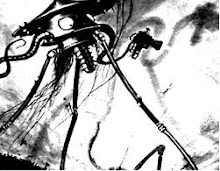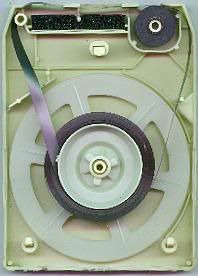Presidential Primaries
 I've been meaning to write down my thoughts on Presidential primaries for some time now. Not too long ago an interesting book was brought to my attention, Boys on the Bus by Timothy Crouse. In this book, Crouse followed the press coverage of the 1972 presidential campaigns. His analysis is considered the first to identify "pack journalism," which translates to journalists reporting in a similar way. It's a kind of "groupthink" that forms a consensus among journalists about what is newsworthy and what is not. It's how meta-narratives about candidates evolve and are eventually accepted as conventional wisdom among journalists, whether true or not.
I've been meaning to write down my thoughts on Presidential primaries for some time now. Not too long ago an interesting book was brought to my attention, Boys on the Bus by Timothy Crouse. In this book, Crouse followed the press coverage of the 1972 presidential campaigns. His analysis is considered the first to identify "pack journalism," which translates to journalists reporting in a similar way. It's a kind of "groupthink" that forms a consensus among journalists about what is newsworthy and what is not. It's how meta-narratives about candidates evolve and are eventually accepted as conventional wisdom among journalists, whether true or not.
I bring this up because I feel that a similar phenomenon is already in place as far as the importance of Presidential primaries go. Tom Tomorrow's cartoon brilliantly displays how journalists have accepted that these early primaries can decide the entire primary election. The press are applying the "conventional wisdom" that these early state primaries are somehow more important than the rest of the country, and that these votes are a representative sample which can predict the outcome of the primary before all the votes are cast.
Primary elections are very much like general elections in that these elections require a majority of the national vote to win. There is a difference between the Democratic and Republican primaries -- the Democratic primaries split the vote proportionally between the candidates to the number of votes won in each state; however, the Republican primaries employ a "winner-takes-all" approach, which gives all the votes in any given state to the victor of that state. This distinction aside, the press still seem to think that the Iowa, New Hampshire, and South Carolina primaries can decide the national primary election for each party. How can only three states decide an election involving 50 states?
Despite this glaring logical problem with the press' assumption "conventional wisdom," they continue to proclaim that the primary election is over before it has even started. The problem here is that many Americans listen to what the press have to say about the primary election -- quite a lot actually. I suspect that when the press claim that a particular candidate's chances are nil, a good many Americans become afraid that they'll be throwing their vote away by casting for the candidate of their choice. And so, our front-runners emerge, whether or not they are actually the front-runners. Press coverage of a candidate's campaign seems to influence voters' opinions and herd those opinions to be closer to what the journalists covering the campaigns think they should be.
Just think about what happened to Howard Dean in 2004. He was an outsider that the press considered not to have a chance. His campaign was entertained as an interesting change of pace, but not anything that could lead to a nomination. When Dean won in Iowa and New Hampshire, the press turned on him. The-"scream"-heard-around-the-world narrative dominated the press' coverage, and ultimately broke his campaign.
Now, I don't have large volumes of quantitative data to suggest that the press coverage is overwhelmingly influencing the way that Americans vote, but in recent years I have witnessed how absurdly the press declares victory for the primaries so early. I have witnessed the importance that the press place upon the early primary elections, and it truly disgusts me. I also can't know that many Americans will disregard their first choice simply because the press say that that candidate is not viable, but my own experience with anecdotal evidence suggests that something is at work here. I've heard the same kind of comment from many friends and family members, "I don't want to throw my vote away, so I'm going to vote for such-and-such instead of the candidate I really want." My gut twists when I hear such words -- it's as if we've decided to abdicate our political power and throw a wrench in the whole democratic process. It makes me feel as though our elections are a sham.


